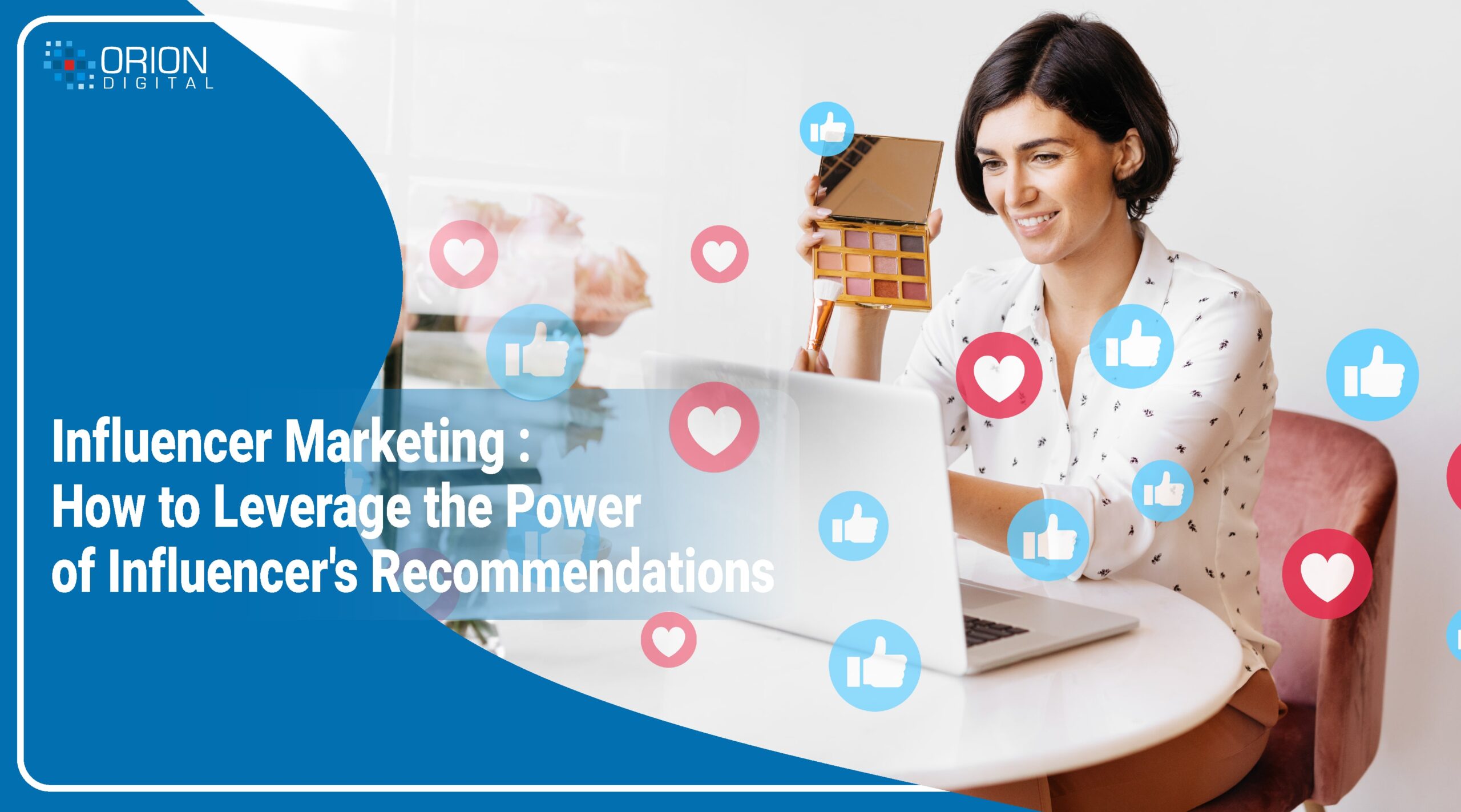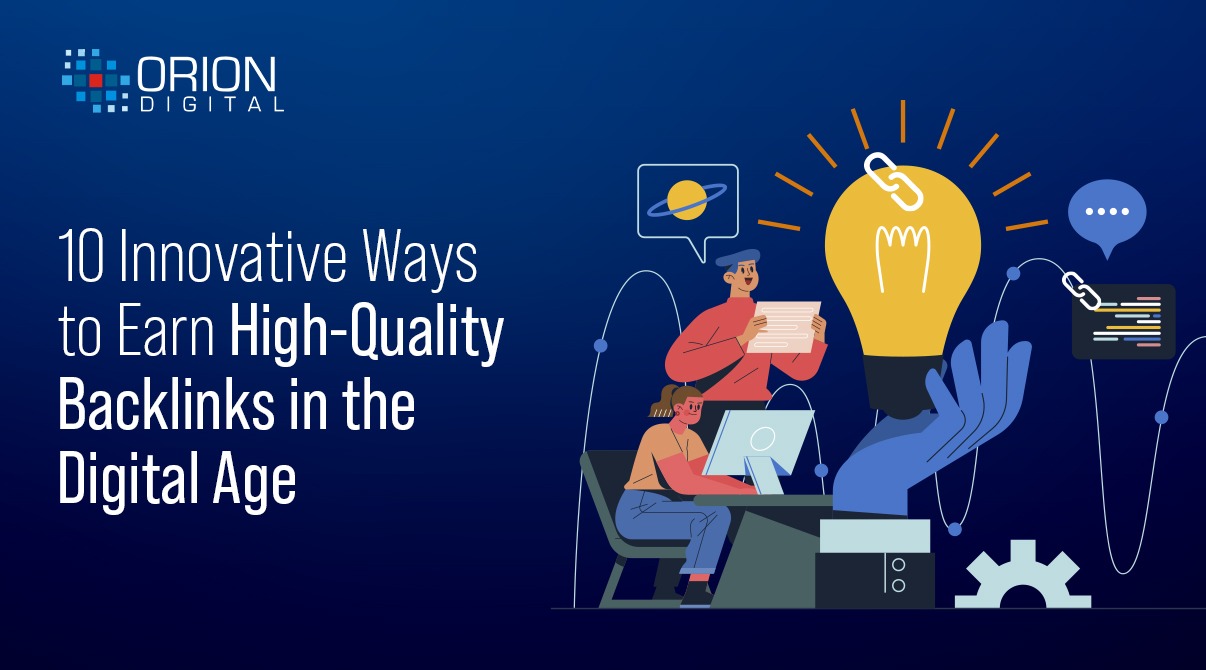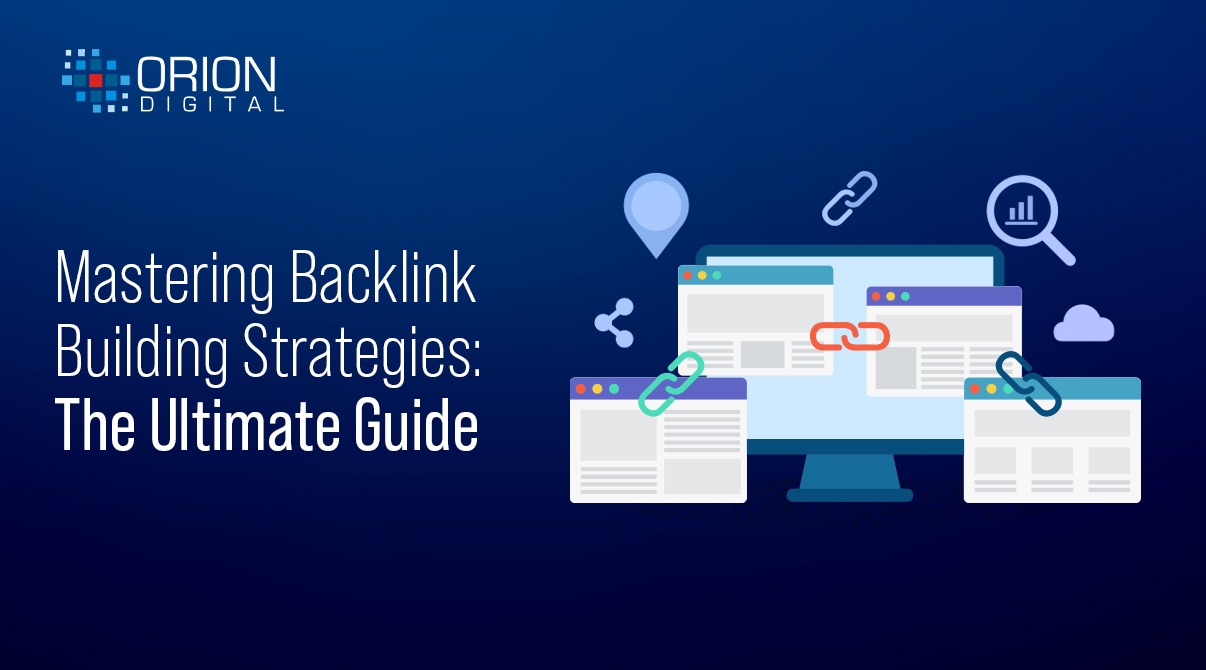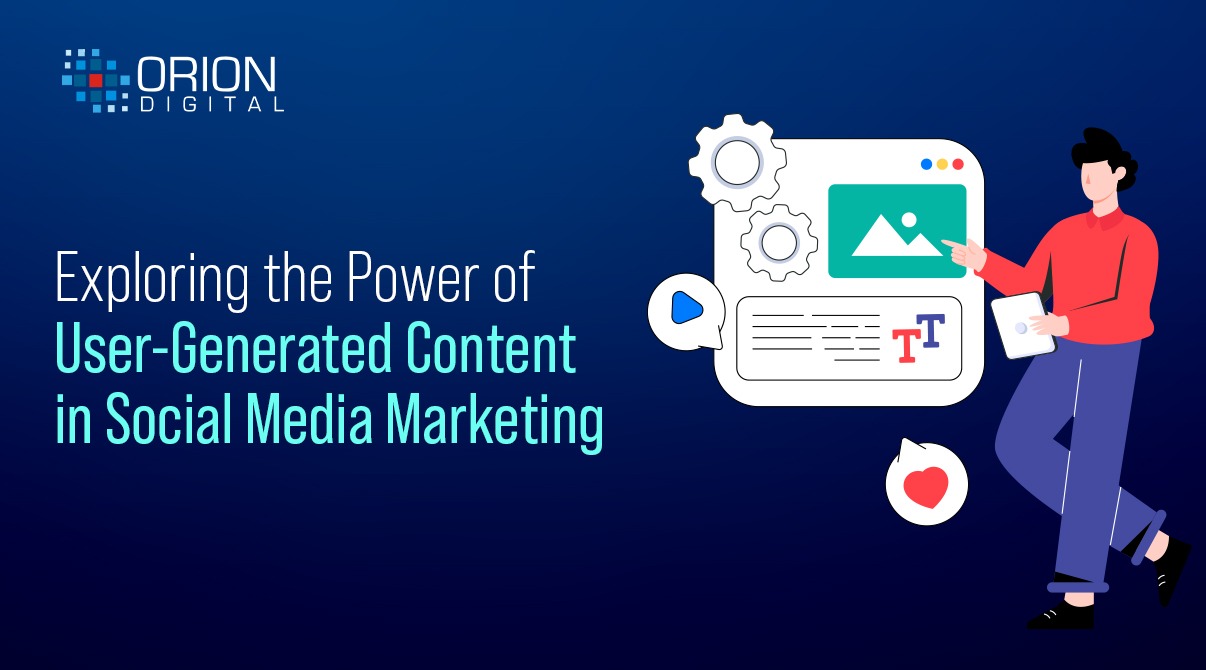
Influencer Marketing: How to Leverage the Power of Influencer’s Recommendations
- admin
- June 7, 2023
- Digital Marketing
- Digital Marketing, Orion Digital, ORM, Social Media, Web Design
- 0 Comments
In today’s digital age, Influencer Marketing has emerged as a powerful tool for brands to connect with their target audience. With the rise of Social Media platforms and the increasing influence of social personalities, leveraging the power of Influencers has become an effective way to promote products and services (Social Media Agencies in Mumbai).
This article, we will shed light on the power of Influencer Marketing
Understanding Influencer Marketing
Influencer marketing is a form of collaboration between brands and individuals who have influence or can influence people through Social Media platforms. These individuals, known as influencers, have built a strong reputation and credibility within their niche. Brands often partner with influencers to leverage their influence and increase reach and engagement with their target audience effectively.
There are a few pointers that will help understand the concept and application of the same in today’s digital day and age (Digital agency in Mumbai)
1: Recommendations
One of the key aspects of Influencer Marketing is the power of recommendations. Influencers have a loyal and ever-engaged audience that trusts their opinions and suggestions. When an influencer recommends a product or service, their followers perceive it as a genuine endorsement rather than referring to traditional advertising. This authenticity significantly impacts consumer behavior and drives sales.
2: Identification
To harness the power of influencers, brands must identify the right influencers for their campaigns. It’s essential to consider the ratio of the relevance of the influencer’s content to the brand’s values, its ethos and personality and the target audience. Partnering with influencers whose values align with the brand’s values ensures a more authentic and meaningful collaboration. (ORM agency in Mumbai)
3: Relationship
Successful influencer marketing relies on building authentic relationships between brands and influencers (Digital Marketing Agency in Mumbai). Instead of approaching influencers solely as marketing tools, brands should aim to establish long-term partnerships based on mutual trust. By involving influencers in the brand’s story and giving them creative freedom, brands can ensure more genuine and impactful collaborations.
4: Craft
Content plays the most important role in Influencer Marketing campaigns. Brands should collaborate with influencers to create content that resonates with their audience while highlighting the product or service that is being promoted. Whether it’s through captivating videos, engaging Social Media posts, or informative blog articles, the content should be tailored to the influencer’s style and the preferences of their followers.
5: Measurement
Like any other campaign, it’s essential to track and measure the results of influencer marketing campaigns. Brands can utilize various metrics such as engagement, rate of engagement, reach, impressions, click rates, and conversions to evaluate the success of their campaigns. This data provides valuable insights into the effectiveness of influencers and helps with strategies in the future.
6: Compliance
In recent years, there has been an increased focus on compliance and transparency in Influencer Marketing. It is crucial for both brands and influencers to adhere to advertising guidelines and ethics and not disclose any sponsored content or brand partnerships. By maintaining transparency, brands can build trust with their audience and ensure ethical practices within the influencers.
7: Exploration
While Instagram remains a popular choice of platform for Influencer Marketing, brands should not limit themselves to a single platform. Depending on the target audience and campaign and campaign objectives, brands can explore other platforms too. Each platform has its uniqueness to offer. Its advantages allow brands to tap into a diverse range of audiences and engage with different types of influencers.
8: Micro-Influencers
In addition to macro-influencers with a large following, brands can also consider working with micro-influencers who have a smaller but highly engaged and niched audience. Micro-influencers often specialize in niche markets, allowing brands to target specific demographics or interests more precisely. Their recommendations carry significant weight within their dedicated communities.
9: Evolve
Lastly, Influencer Marketing is a dynamic field that requires brands to stay updated with the latest trends and adapt their strategies accordingly. Platforms can evolve, and audience preferences can change. Brands must be flexible and open to experiment, constantly refining their approach to leverage the power of influencers’ recommendations effectively.
Conclusion:
Influencer Marketing provides an opportunity for brands to harness the power of influencers. By identifying the right influencers, building authentic relationships, creating relevant and compliant content, and tracking results, brands can harness the influence and credibility of online personalities to drive success in the digital landscape. Embracing this powerful marketing strategy can help brands establish a strong online presence and connect with their target audience.
To Summarise:
- Capitalise on the reach of the influencer audience
- Craft related and relevant content
- Practice unique and conventional strategies
- Be open to experiment






